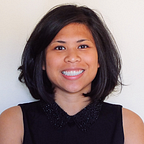Labor of Love: the invention of dating
HBR Podcast
Dating was an invention?
According to Moira Weigel, dating is a product of the industrial revolution. Through her research, she not only traces the history of dating but also makes connections of how the economy shapes dating culture.
More than anything, how we work impacts the way we approach relationships. As our society is moving towards less stable work and short-term contracts it makes our personal lives more fluid and less predictable. For example, people gone are the days of staying at a job for 20 years. Now the average time people stay in a job is between 1–3 years. The amount of time we spend working also impacts our spare time as well. All these factors, inhibit us from committing to longer term relationships or “settling down” knowing that they are still evolving their life.
I encourage you to read the book if you’re interested in the history of dating or listen to this podcast for a quick crash course:
🔊 Listen to the Podcast
Key Takeaways
Before Dating
People usually met in family / community supervised situations (church social) rather than choosing their partners.
Industrial Revolution helped spur the invention of dating
Women entering the workforce changed everything, around the 1890s, you have a wave of urbanization and people moving to cities. Women have both the opportunity and obligation to earn money and there was no other context before for women to be in the public. But that obviously changed as women moved to cities and could meet men unsupervised.
When was dating invented?
First in 1896, and it was a working class phenomenon, women driven by poverty and the necessity to find a husband in cities. The second wave was post WWI — in the 1920s women started going to college. Co-ed classes started forming and that changed the culture of courtship.
How work and economics shape dating rituals
Back in the day, it was normal for a boss to marry his secretary or doctor marrying his nurse. Today, this seems to have flipped, more diverse relationships except when it comes to economic mobility.
State of Marriage
People are waiting longer to marry but has led to more successful marriages. Divorce rates are down, from before. In other demographics we’ve seen a trend away from marriage, huge financial stress is not the world’s greatest aphrodisiac, happy and lasting language is a class privilege
Online Dating
Now we are living in 24/7 work culture, all the tools for online dating. Productivity, has taken over courtship. That’s what they promise. They make the search for love or pleasure more efficient. I think it does beg the question…efficient to what end?
It’s important to keep in mind, each app is designed to keep you on the app. It’s a weird service business. If they did a perfect job, they would have no customer. I don’t know if love could be made efficient.
Conventional knowledge around Dating
There’s so much advice and literature out there, and there’s so much advice aimed at straight people, and hyping up dating as a game and out psyche the person. For example, the whole theory of gender, women need to follow the rules and play the game.
This mutual mystification of men and women is really counterproductive. Romantic advice is so far behind career advice for women to have agency.
There’s so much dating advice and apps to make us anxious and take us out of ourselves, it’s profitable to make Americans anxious.
Try as much as possible to be present interactions rather than transactions.
On relationships…
Obsessive emphasis on monogamous romantic love is very counterproductive. In terms of personal well-being and happiness we all need many relations, we have this 200 year old idea, finding one person to deal with everything. Cultivate loving friendships with other people that you don’t necessarily have sex with.
